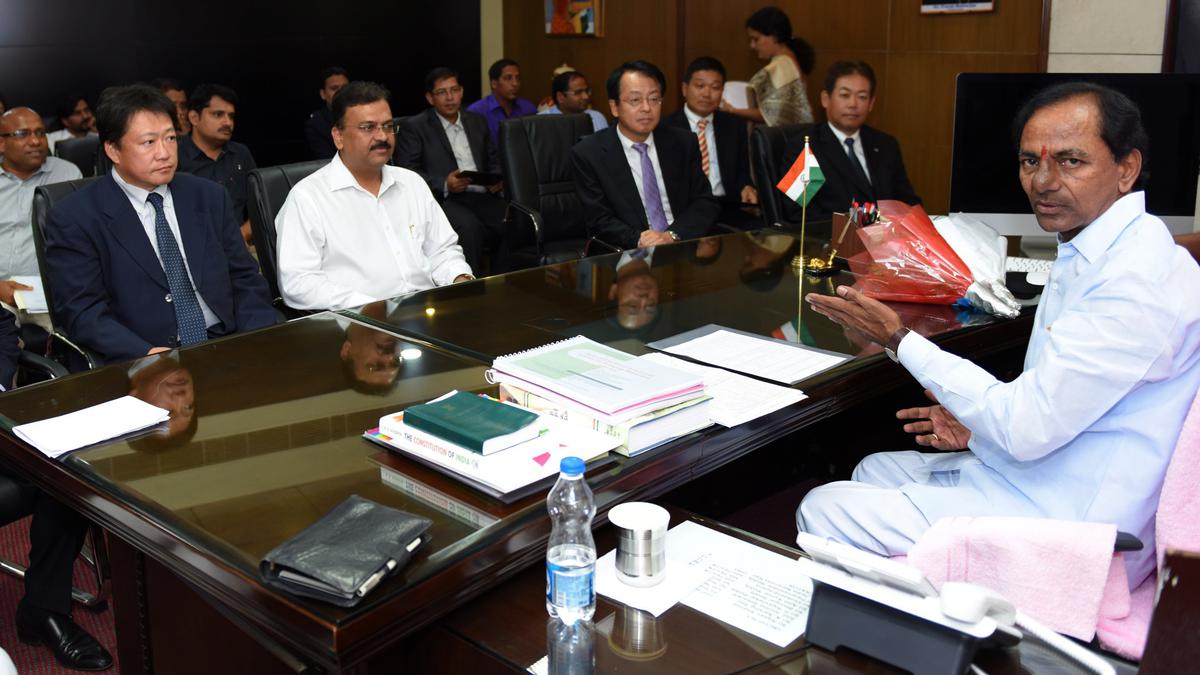
A nuanced approach to industrial development
The Hindu
A cornerstone of Telangana’s economic progress in the nine years, since the State came into existence in June 2014, has been the government’s impetus on industrial development through a series of enabling policy measures.
A cornerstone of Telangana’s economic progress in the nine years, since the State came into existence in June 2014, has been the government’s impetus on industrial development through a series of enabling policy measures.
Looking back from the leadership position it commands and the reputation of being a State with progressive policies, everything it did to reach where it is today may seem a given. But, the road ahead was anything but smooth when the K.Chandrasekhar Rao-led government took the reins. An electricity crisis had already wreaked havoc for the manufacturing units, skeptics predicted a flight of trade and business, out of the State, and a subdued realty sector was looking for right directions.
The administration, however, lost little time to allay the apprehensions of the business community, went about sourcing power from private producers, and got down to framing policies, including the Telangana State Industrial Project Approval and Self-Certification System (TS-iPASS) that eventually emerged as a catalyst for attracting investments and spurring industrial growth. Ever since, 19,549 permissions have been issued under the TS-iPASS to new projects entailing total investments of over $30 billion and with a potential to generate direct and indirect employment for lakhs of people.
Stable government, able leadership under Chief Minister KCR and progressive policies, State’s Industries and IT Minister K.T.Rama Rao often asserts, remain factors behind Telangana emerging as an industrial powerhouse. Though the transformation translated into jobs, the government did not stop at that as it wanted the local youth to get preference and towards that, created the Telangana Academy for Skill and Knowledge (TASK). A master stroke, TASK helped address job aspirations and at the same time, ensured a pipeline of skilled candidates for firms investing in the State. The government also announced additional incentives for firms onboarding more local youth. Interestingly, the move came at a time when some States were insisting on firms hiring locals.
At another level, Telangana also identified a clutch of thrust areas, for attracting investments, and in doing so, also assured prospective investors that it will either meet or offer better incentives that they have been promised in other States.
A different policy approach apart, there are other benefits for investors to set up projects in Telangana — from availability of a large land bank, talent pool, efficient bureaucracy, maintenance of law and order, robust infrastructure, and most importantly, the central location of Hyderabad in the country. The State is also not new to industries, playing host for decades to the pharmaceuticals sector, defence research and development facilities as well as the IT industry.
The IT industry is the bedrock on which Telangana was able to attract some of the biggest names and host the largest tech development of leading firms such as Microsoft, Amazon, Apple, Salesforce and Medtronics, outside of their U.S. headquarters. If the rocky terrain of Hyderabad has morphed into swanky, glass-facade multi-storied structures housing the tech operations of hundreds of companies, many of them multinationals, it is also because of the emergence of the city as a competitor to Bengaluru on the back of affordable realty.













